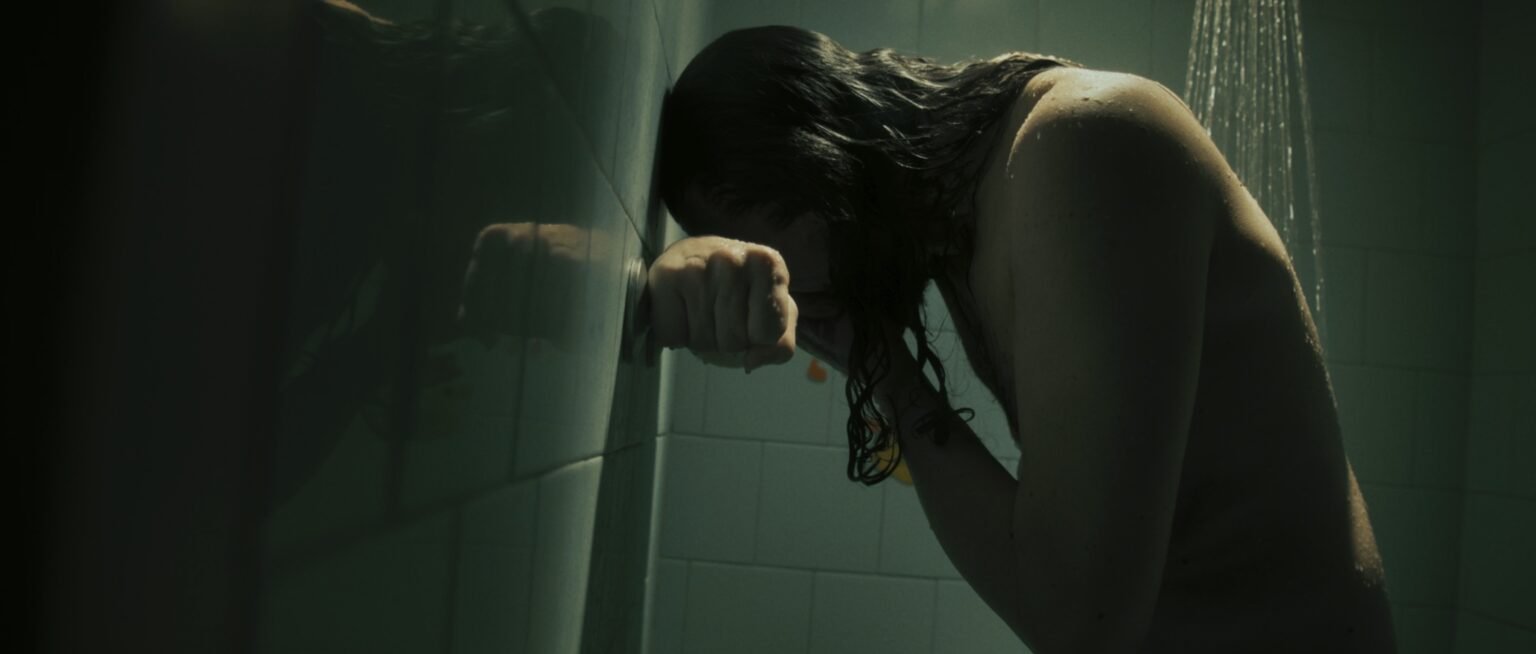The Coffee Table: Most Terrifying Film This Year. Just Imagine If it Had a Villain…
By Thom Ernst
Rating: A
I am not likely to see a film more terrifying this year than director Caya Casas’ The Coffee Table, and—for the sake of my well-being, and my sanity—I hope I never do.
That could be the film’s review. No need for a plot summary. There’s a coffee table in the film and that is already too much information. Not that spoilers could offer much comfort. They can only serve to shift anxieties away from shock onto a grueling run of anticipation.
Either way, The Coffee Table is worth the discomfort (some of it extreme, all of it intentional) it takes to make it through to the end. Committing to the film means committing to all of it. I suppose you could turn it off and have someone tell you how it ends, but you’d be robbing yourself from the experience of witnessing a new voice in cinema—yes, in horror but not just in horror.
Casas cowrote The Coffee Table with creative partner Cristina Borobia. It’s hard imagining one mind conceiving this story of a couple climbing out from under the debris of a troubled marriage, let alone acknowledging a collaborator.
Casas and Borobia have crafted a screenplay where innocuous dialogue is twisted by circumstance into something horrifying. Whether it’s an argument about the purchase of a garish coffee table with an unbreakable glass top, or the simple interactions between two women who meet at a supermarket, not a word is wasted: often ironic, never comforting.
Here’s what I think I can tell you without giving away too much of the story: Jesus (David Pareja) and Maria (Estefanía de los Santos) are rising out of the slumps of a bad patch in their marriage. They are at a furniture store discussing whether to purchase a coffee table.
One thinks the table is a work of art that will change their lives (it does) while the other thinks it’s an ugly thing with no place in their home (it doesn’t). They live in an apartment building. Above them lives a single mom and her manipulative 13-year-old daughter, Vecina (Gala Flores). Vecina has a storyline that is disturbing enough for one thriller, but in The Coffee Table, Vecina’s maliciousness takes a back seat.
The coffee table is a serious cause of disagreement between Jesus and Maria but even more so upon the arrival of Jesus’ irresponsible brother, Carlos (Joseph Maria Riera) and his inappropriately aged girlfriend, Cristina (Claudia Riera). Truthfully, that’s hardly an accurate description of what happens in the film, but it’s all you’re going to get from me. Well, except to explain that while there are plenty of victims in the story, there is no villain.
No mistake, The Coffee Table is a horror movie. But the horror stretches beyond the genre in the ways that defined many of Alfred Hitchcock’s works and the early works of Roman Polanski. (It’s risky bringing in Polanski’s name given some people’s predilections against him, but the distinction is in the work, not the director.)
A more recent comparison is the works of director Ari Aster. It’s inevitable Aster’s Hereditary will enter the conversation, if only that no film since Hereditary has been so compelling.
The writing in The Coffee Table is almost acrobatic in its delivery, manipulating feelings and ideas by rendering deep guttural emotions in the all too familiar ways. The terror in Casas’ film is linked to the unknown. But differing from other horror films, the unknown in Casas’ film is neither ethereal nor otherworldly.
It’s a fear so recognizable, so innately human that being allowed in on the secret—audience knows, characters don’t—is a responsibility enough to cause the most unflappable viewer to squirm in their seats.
But what can be said of the writing can also be said of the direction. Most of the film takes place in Jesus and Maria’s apartment except for an opening scene in a furniture store (the coffee table had to come from somewhere) and later a grocery store. In a pivotal moment, Casas frames a scene that doesn’t so much as harnesses our focus as deliberately eliminate us from the action.
I am grateful for Casas’ considerable restraint and eagerly await the director’s next film.
The Coffee Table. Directed by Caya Casas. Starring David Pareja, Estefanía de los Santos, Gala Flores, Joseph Maria Riera and Claudia Riera. Now available to stream on V.O.D. and various platforms.



